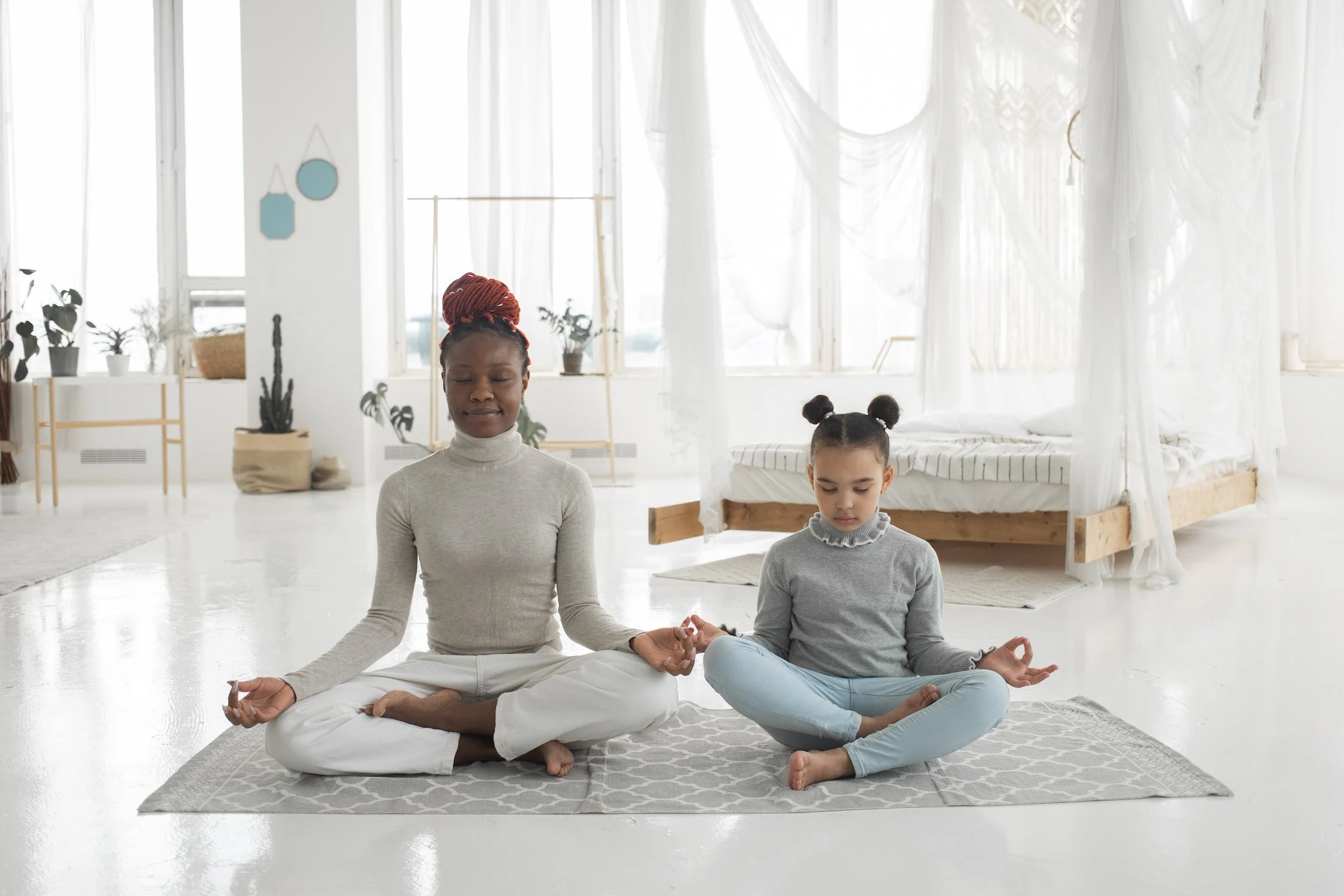Parental Self-Care 101: Nurturing Balance and Uplifting Your Own Well-Being
As a parent, you are constantly pouring your heart and soul into your children’s well-being. You prioritize their needs above your own, often sacrificing self-care in the process.
It’s easy to get lost in the daily routine of caring for others, but it’s crucial to remember that nurturing your own well-being is just as important. This is where parental self-care comes into play.
Parental self-care means taking intentional steps to prioritize your physical, emotional, and mental health. It means making time for yourself amidst the chaos of parenthood and embracing balance in your daily routine. As they say that you cannot pour from an empty cup, you can’t give love and care if you didn’t give it to yourself first, so prioritizing self-care is very important as it will greatly benefit your children and your family.
By nurturing your own well-being, you can show up as a happier and healthier parent for your children. In this article, we’ll explore practical tips for incorporating parental self-care into your busy life as a parent and why it’s so important to do so.
So take a deep breath, pour yourself a cup of tea (or coffee), and let’s dive in together on this journey towards better parental self-care practices.
The Importance of Parental Self-Care
Don’t let neglecting your own needs as a parent leave you feeling drained and unfulfilled. It’s easy to fall into the trap of prioritizing everyone else’s needs over your own, but taking care of yourself is just as important for your family’s well-being.
The importance of parental self-care goes beyond just physical health – it also affects your mental, emotional, and spiritual health.
Balancing responsibilities can be overwhelming at times, but making time for self-care doesn’t have to feel like another task on your to-do list. By taking small steps every day, such as setting aside time for a hobby or getting enough sleep, you’ll start to see the benefits of being kind to yourself.

Remember that investing in your own well-being not only helps you recharge and refocus, but also sets an example for your children on the value of self-care.
So take a deep breath and get ready to discover practical tips for nurturing your well-being.
Practical Tips for Nurturing Your Well-being
It’s important to prioritize your well-being, and that means making sure you’re getting enough sleep and eating healthily.
Exercise and physical activity can also go a long way in helping you feel better both physically and mentally.
Don’t forget to take time for mindfulness and self-reflection to help manage stress and build resilience.
Remember, taking care of yourself prioritizing parental self-care isn’t selfish – it’s essential for being the best parent you can be.
Prioritizing sleep and healthy eating
Oh, sure, go ahead and sacrifice your precious sleep and nourishment for the sake of your little ones. Who needs energy or a functioning immune system anyway? But let me tell you this: taking care of yourself is not selfish. It’s actually one of the best things you can do for your children. You cannot be fully present and attentive to their needs if you’re running on empty.
Start by prioritizing sleep hygiene. This means creating an environment that promotes restful sleep, such as keeping electronics out of your bedroom, controlling the temperature, and establishing a consistent bedtime routine. Getting enough quality sleep will not only help you feel more awake during the day but also boost your mood and cognitive function.

And don’t forget about nutritious meals! Eating a balanced diet with plenty of fruits, vegetables, lean protein, and whole grains will give you the energy and nutrients you need to keep up with your busy schedule. Plus, modeling healthy eating habits sets a great example for your kids to follow.
Now that we’ve covered how important it is to prioritize sleep and healthy eating habits in order to take care of yourself as a parent, let’s talk about incorporating exercise and physical activity into your routine!
Incorporating exercise and physical activity
Now let’s talk about how to fit exercise and physical activity into your busy schedule as a parent. It can be challenging, but incorporating fitness routines into your daily routine is essential for maintaining a healthy lifestyle.
Practicing parental self-care starts by setting realistic goals for yourself and creating an exercise accountability plan. Find a workout buddy or join a gym that offers childcare services, so you don’t have to worry about finding time to exercise.

Remember that exercise doesn’t have to mean intense workouts at the gym every day. Simple activities like taking walks with your kids, biking around the neighborhood, or practicing yoga in your living room can also make a significant impact on your health.
Don’t beat yourself up if you miss a workout or two – it’s all about progress, not perfection. By prioritizing physical activity in your life, you’ll feel more energized and better equipped to take care of those around you.
Incorporating exercise into your parental self-care routine is just one aspect of nurturing your own well-being as a parent. Practicing mindfulness and self-reflection are equally important components of parental self-care. By taking time each day to reflect on how you’re feeling and what you need emotionally, you’ll be able to approach parenting with more clarity and intentionality.
Practicing mindfulness and self-reflection
Let’s dive into the benefits of exploring mindfulness and practicing self-reflection as a busy parent. Taking time to pause, breathe, and reflect can help you approach your daily challenges with more clarity and intentionality.
Mindfulness is the practice of being present in the moment without judgment or distraction. It allows us to observe our thoughts, emotions, and physical sensations with curiosity instead of reacting automatically to them. When we practice mindfulness regularly, we become more aware of our habits and patterns, allowing us to make intentional choices that support our well-being.
Self-reflection is another powerful tool for personal growth and development. By taking time to reflect on our experiences, we gain insight into our values, goals, strengths, and areas for improvement. Self-reflection helps us identify what is most important to us so that we can prioritize those things in our lives. This process also helps us recognize when we are getting off track or feeling overwhelmed so that we can take action before it becomes too much to handle.
Now that you’ve explored how mindfulness and self-reflection can benefit your life as a busy parent, let’s talk about setting boundaries and saying no without feeling guilty or selfish.
Setting Boundaries and Saying No
Setting boundaries and saying no can be challenging, but did you know that it’s actually good for your well-being? It’s important to learn how to say no without feeling guilty and managing expectations with family and friends.
Saying yes to everything can lead to burnout and resentment towards others. By setting boundaries, you’re taking control of your life and creating space for self-care. It’s okay to prioritize yourself sometimes.
Saying no doesn’t mean you don’t care about others, it means that you value your time and energy. Remember that it’s not selfish to take care of yourself first, it’s necessary. So next time someone asks something of you that doesn’t align with your values or goals, don’t be afraid to say no. Your well-being is worth protecting.
Transitioning into the next subtopic: Finding support and seeking help is crucial in maintaining balance as a parent.
Finding Support and Seeking Help
Asking for help and finding support is key to feeling supported and less overwhelmed as you navigate the challenges of parenting. It can be difficult to admit that you need assistance, but it’s important to remember that seeking help doesn’t make you weak or incapable. In fact, it shows strength and understanding of your own limitations.
Connecting with others who are going through similar experiences can be incredibly comforting, whether it’s through a parenting group, online community, or simply talking with a friend.
In addition to peer support, don’t hesitate to seek professional help if needed. This may include therapy for yourself or your child, hiring a babysitter or nanny for some much-needed alone time, or consulting with a pediatrician or other healthcare provider.

Remember that taking care of your own well-being is crucial in order to provide the best care for your children. By finding the right support system and resources, you can alleviate some of the stress and feel more equipped to handle whatever comes your way as a parent.
Prioritizing self-care in your daily routine is essential for maintaining balance and avoiding burnout as a busy parent.
Embracing Balance and Prioritizing Self-Care in Your Daily Routine
You deserve to take care of yourself, and making parental self-care a priority is crucial.
Finding balance in your daily life will help reduce stress and improve your well-being.
By modeling healthy self-care habits for your children, you’re teaching them the importance of valuing their own needs and nurturing their own well-being.
Making parental self-care a priority
It’s time to prioritize parental self-care and carving out space for things that bring you joy and relaxation. Creating boundaries and avoiding burnout should be at the top of your list.
It can be easy to get caught up in the day-to-day responsibilities of being a parent, but neglecting your own needs will only lead to exhaustion and resentment.
Start by setting aside time each day to do something just for you. This could be as simple as taking a relaxing bath or reading a book. Don’t feel guilty about taking this time for yourself – it’s essential for your well-being and will help you show up as a better parent in the long run.

Remember, parental self-care isn’t selfish; it’s necessary. By making it a priority, you’ll be able to find more balance in your daily life and feel more fulfilled overall.
Finding balance in your daily life
Finding a sense of equilibrium in your day-to-day routine is crucial for maintaining overall contentment and avoiding burnout. Creating routines can be helpful in achieving balance, as it allows you to structure and plan your time efficiently.
Make a list of tasks that are important to you and prioritize them accordingly. This will help you manage your time better and avoid feeling overwhelmed. Time management is also key to finding balance in your daily life.
Set aside specific times for work, relaxation, exercise, and any other activities that are important to you. Stick to these schedules as much as possible, but don’t beat yourself up if things don’t always go according to plan.

Remember that parental self-care is not about being perfect or ticking everything off your to-do list; it’s about making an effort towards nurturing your own well-being. By creating routines and managing your time effectively, you’re taking the first steps towards prioritizing self-care in your life.
Modeling this behavior for your children will not only benefit their own well-being but also show them the importance of taking care of themselves as they grow older.
Modeling Parental Self-Care For Your Children
Show your offspring the significance of taking time for themselves by modeling parental self-care. You can teach mindfulness to your children by demonstrating how you prioritize and take care of your own well-being.
Your actions speak louder than words, so make sure that they see you engaging in activities that bring you joy, relaxation, and rejuvenation. For instance, take some time each day to engage in an activity that helps you unwind and reconnect with yourself. It could be as simple as a 10-minute meditation or a yoga session, reading a book, or even taking a leisurely walk in nature.

When your children see how much happier and energized you are after engaging in these activities, they will understand the importance of self-care. Moreover, they will learn to prioritize their own well-being and mental health as they grow up – a valuable lesson that will serve them well throughout their lives.
Frequently Asked Questions
How do I convince my partner to support me in my parental self-care routine?
When it comes to building a support system for your parental self-care routine, partner communication is key. It’s important to approach this conversation with compassion and understanding, explaining why taking care of yourself is crucial for both your well-being and the well-being of your family.
Try discussing specific ways in which your partner can support you, whether it’s taking on more household responsibilities or simply encouraging you to take time for yourself. Remember that open and honest communication is essential in any relationship, and finding a way to work together towards prioritizing parental self-care will only strengthen your bond as partners and parents.
Can self-care activities be done with children, or do I need to find childcare first?
Parental self-care activities with children can be a great way to bond and create meaningful experiences together. Plus, modeling self-care for kids has numerous benefits, including teaching them the importance of taking care of their own well-being and showing them healthy coping mechanisms for stress.
So, don’t feel like you need to find childcare before practicing self-care. Instead, involve your children in activities such as going for a walk or hike, doing yoga or meditation together, having a family game night or movie night, or cooking healthy meals together.
By prioritizing your own self-care while also involving your children, you’re not only setting a positive example but also creating memories that can last a lifetime.
What if I don’t have the financial resources to invest in parental self-care activities or therapy?
It’s understandable that financial resources can be a barrier when it comes to investing in parental self-care activities or therapy. But don’t let that stop you from taking care of yourself.
There are affordable parental self-care options available, such as practicing mindfulness and meditation, taking walks in nature, or doing yoga at home with free online tutorials.
As a single parent, it can be challenging to find time for yourself, but it’s important to prioritize your own well-being. Remember that taking care of yourself sets an example for your children and allows you to show up as the best version of yourself for them.
So take some time today to do something for yourself, even if it’s just a few minutes of deep breathing or stretching. You deserve it!
How do I deal with feelings of guilt or selfishness when prioritizing my own well-being?
It’s completely normal to feel guilty or selfish when prioritizing your own well-being, especially if you’re used to putting others first. However, it’s important to remember that taking care of yourself is not only beneficial for you but also for the people around you.
Overcoming guilt can be a process, but setting boundaries and communicating your needs clearly can help. Remember that parental self-care isn’t just about indulging in luxurious activities; it can also mean giving yourself permission to rest and recharge when needed.
By taking care of yourself, you’ll have more energy and resources to give back to those around you. So don’t be afraid to prioritize your own well-being – it’s an act of self-love and ultimately benefits everyone involved.
How can I incorporate parental self-care into my busy schedule as a working parent?
As a busy working parent, it can be difficult to find time for yourself. But taking care of your own well-being is just as important as taking care of your family’s needs.
Quick parental self-care ideas like taking a few deep breaths, going for a walk outside, or indulging in your favorite treat can do wonders for your mood and energy levels.
Making time for yourself may require some creative scheduling, but creating a self-care routine will help you prioritize your needs and make it easier to fit into your daily life.
Remember, taking care of yourself will benefit not only you but also those around you. So don’t feel guilty about prioritizing self-care – it’s necessary for maintaining balance and nurturing your own well-being.
What is parental self-care?
Parental self-care means that you are prioritizing your well-being firsts. It can be simply creating a routine or doing a hobby that you like before you became a mom, walk in the park, getting enough rest and eating healthy.
Conclusion
Congratulations! You’ve come to the end of this article on parental self-care.
By now, you should be well aware of the importance of taking care of yourself as a parent and practical tips for nurturing your well-being.
In today’s fast-paced world, it’s easy to get caught up in the chaos and forget about ourselves. But remember, you can’t pour from an empty cup. Taking care of yourself isn’t selfish; it’s necessary.
So take that much-needed break, say no when you need to, find support, and prioritize your self-care in your daily routine.
Remember that by embracing balance and nurturing your own well-being, you’ll be better equipped to take care of those around you.
As parents, we often put our children’s needs before our own without realizing how detrimental it can be for both ourselves and our loved ones.
By practicing parental self-care regularly, we can become more present, patient, and understanding with our children while also improving our overall mental health.
Self-care is not a luxury but a necessity for parents who want to lead fulfilling lives while raising happy children.
So go ahead! Take some quality time for yourself today – whether it’s reading a book or going out for a walk in nature – and start prioritizing your well-being like never before!
Always remember: taking care of yourself isn’t just good for you; it’s good for everyone around you too!







